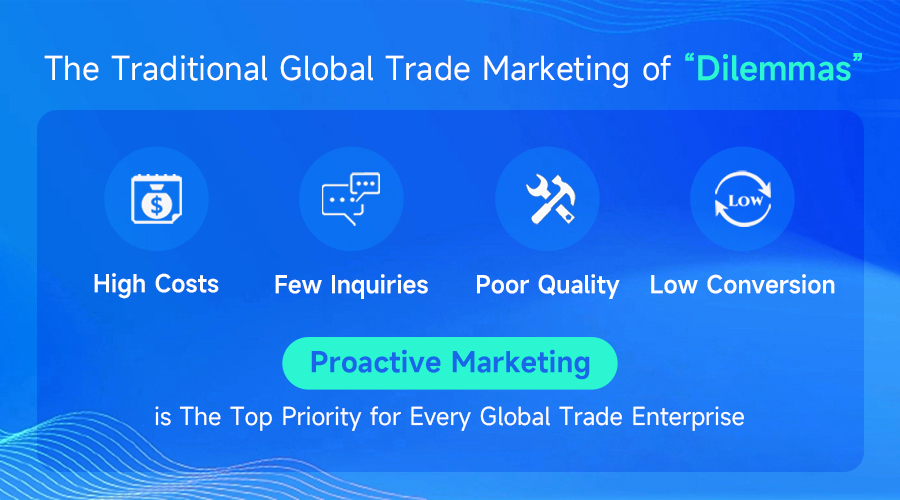 Trade Data
Trade Data
 18-06-2024
18-06-2024
In the era of globalization, the role of international suppliers has become increasingly pivotal. They are essential players in the global supply chain, providing businesses with the products and materials needed to compete in the international market. This article explores the importance of international suppliers and offers key strategies for building successful partnerships with them.

The Importance of International Suppliers
1.Access to Diverse Products:
International suppliers enable businesses to access a wide range of products that may not be available domestically. This diversity allows companies to meet the varied demands of their customers and stay competitive.
2.Cost Efficiency:
By sourcing materials and products from countries where production costs are lower, businesses can reduce their overall expenses. This cost efficiency can be a significant competitive advantage in price-sensitive markets.
3.Innovation and Quality:
Many international suppliers are leaders in innovation and quality, providing businesses with high-standard products and cutting-edge technologies. Partnering with such suppliers can enhance the quality of a company's offerings and improve customer satisfaction.
4.Scalability:
International suppliers often have the capacity to scale production according to demand. This scalability is crucial for businesses looking to grow rapidly or manage seasonal variations in product demand.
Key Strategies for Successful Partnerships with International Suppliers
1.Thorough Supplier Vetting:
Conduct comprehensive background checks and due diligence to ensure the supplier's reliability, financial stability, and compliance with industry standards. This step is vital to mitigate risks associated with international trade.
2.Clear Communication:
Establish clear and consistent communication channels with suppliers. Language barriers and time zone differences can pose challenges, so using multiple communication platforms and setting regular meeting times is essential.
3.Contractual Clarity:
Draft detailed contracts that outline all aspects of the partnership, including product specifications, pricing, delivery schedules, payment terms, and dispute resolution mechanisms. This clarity helps prevent misunderstandings and ensures both parties are on the same page.
4.Quality Control:
Implement stringent quality control measures to ensure that products meet the required standards. Regular audits and inspections can help maintain quality and address any issues promptly.
5.Building Trust and Relationships:
Cultivate strong relationships with international suppliers through mutual respect, transparency, and consistent performance. Long-term partnerships based on trust can lead to better collaboration and more favorable terms.
6.Risk Management:
Develop a robust risk management strategy that includes contingency plans for potential disruptions, such as political instability, natural disasters, or logistical challenges. Diversifying the supplier base can also reduce dependency on a single source.
7.Leveraging Technology:
Utilize technology to streamline supply chain management, from procurement to delivery. Digital tools and platforms can enhance visibility, track shipments in real-time, and facilitate smoother transactions.
Conclusion
International suppliers play a crucial role in the success of global businesses by providing access to diverse, cost-efficient, and high-quality products. However, building successful partnerships with these suppliers requires strategic planning, clear communication, and robust risk management. By implementing the strategies outlined above, businesses can strengthen their international supply chains, enhance their competitive edge, and achieve sustainable growth in the global marketplace.
What can Tendata customs data help enterprises with?
1. Market Analysis
- Market Trends Analysis: Tendata's customs data helps businesses analyze market trends, understand the import and export volumes and growth trends of specific products or industries, and monitor changes in various country markets. Based on Tendata's market analysis, businesses can more accurately select target markets, including considering markets with large import and export trade volumes, rapidly growing demand, and understanding information about potential trading and cooperation partners.
- Product Analysis: By gaining insight into the performance of different products in international markets, businesses can optimize product positioning. Tendata's customs data also provides information on competitors' import and export activities, helping to develop more competitive strategies.
- Competitor Analysis: Using Tendata, businesses can analyze competitors, staying updated on their trade dynamics, import and export prices, trade volumes, etc., enabling rapid adjustments to market strategies.
>> Learn More About Tendata <<

2. Customer Development
- Customer Profiles: Tendata's customs data provides access to customers' import and export records, helping businesses understand their purchasing behavior, including the types of products purchased, quantities, frequencies, etc. This assists in forming customer profiles, allowing businesses to better understand customer needs and preferences. By analyzing customers' trading partners, businesses can understand the supply chain networks in which customers operate, thus gaining insights into their business environment and potential cooperation opportunities.
- Customer Background Checks: Tendata's customs data includes customers' trade history and payment records, facilitating credit assessments. By understanding customers' payment credibility, businesses can prudently select partners, reducing transaction risks. Through customs data, businesses can check whether customers' trading activities comply with relevant regulations and compliance standards, ensuring that cooperation with customers is based on legal and regulatory compliance.
- Lead Generation: By analyzing Tendata's customs data, businesses can directly obtain customer contact information and proactively reach out to foreign trade customers via email, LinkedIn, phone, other social media platforms, etc., for direct marketing and lead generation!
>> Get a Free Demo Now <<

Category
Leave Message for Demo Request or Questions


 T-info
T-info T-discovery
T-discovery

 My
Tendata
My
Tendata Market Analysis
Market Analysis Customer
Development
Customer
Development Competitor
Monitoring
Competitor
Monitoring Customer Relationship
Customer Relationship





































































































































